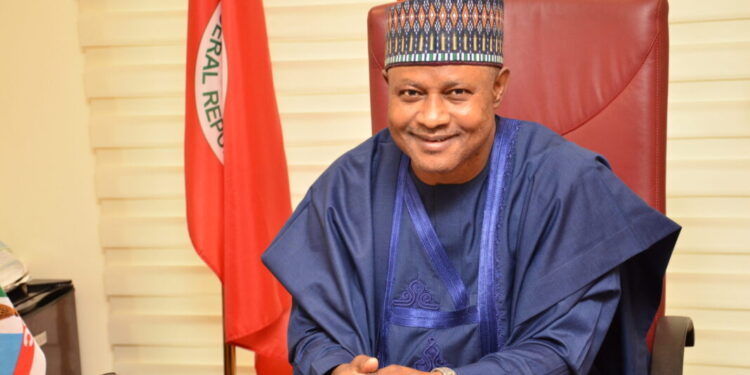The Kaduna State Internal Revenue Service (KADIRS), on Monday, inaugurated a joint revenue committee inorder to realise the N120 billion revenue target set by Gov. Uba Sani.
The News Agency of Nigeria (NAN) reports that the joint committee comprises chairmen of the 23 local government councils and representatives of various ministries, departments, agencies in the state.
The committee is headed by the Executive Chairman of the KADIRS with the Board Secretary/Legal advisor of the Service serving as joint secretaries.
Inaugurating the committee, the Executive Chairman of the KADIRS, Mr Jerry Adams, said the joint revenue committees was in line with the provisions of sections 47 and 48 of the Kaduna State Codification and Consolidation Tax Law of 2020.
He said the law underscored the critical importance of collaboration and coordination in revenue generation efforts in achieving shared objectives.
Adams said that Kaduna state, like many others, faced fiscal pressures and demands for increased investment in critical infrastructure, social services, and economic empowerment initiatives.
He said that meeting the demands required a robust and innovative approach to revenue mobilisation, hinged on collaboration, transparency, and efficiency.
The Executive Chairman therefore said that the inauguration of the joint revenue committee marked a significant milestone in serving efforts to strengthen revenue mobilisation and drive sustainable development in the state.
He stressed that through harnessing the collective expertise, resources, and
commitment of all stakeholders, KADIRS could overcome the current and future challenges and unlock new opportunities for the state’s growth and prosperity.
“The joint committee will work strictly according to the dictates of the law and will
serve as a focal point for strategic planning, policy formulation, and coordination of revenue generation activities across the state.
“They will play a pivotal role in providing guidance and oversight within their respective domains, ensuring that our revenue generation activities are aligned with the specific needs and priorities of each sector.
“Their (members) inclusion reflects our commitment to fostering collaboration and cooperation across all levels of government, as we strive towards our shared goal of advancing the economic prosperity of Kaduna State,” Adams said.
He urged the committee members to live above board and avoid engaging in acts that would be inimical to the realisation of the set objectives.
Adams further appealed to the citizens to be tax compliant in order to reap benefits, while restating the KADIRS committment to tackling tax leakages and punishing officials operating outside the law.
Also, the Legal Adviser and Secretary of KADIRS, Aisha Muhammad, said that the local government joint revenue committee shall attend and present quarterly reports to the state joint revenue committee.
She added that the revenue committee shall be autonomous of the council treasury and shall be responsible for the day-to-day administration of the Local Government Revenue or personnel which form its assessment team in liaison with the Service.
Also speaking the Special Adviser to Gov. Uba Sani on Economic Matters, Malam Ibrahim Muhammad, said the state has the potentials to even generate more than the N120 billion naira revenue target set by the governor.
He regretted that when compared with the first quarter of the previous year, KADIRS was behind in its revenue target.
Muhammad therefore urged the committee members and all other stakeholders to work hard and be committed to the realisation of the set target.
Earlier in his remarks, the state’s Commissioner for Planning and Budget, Mr Mukthar Ahmed, said that huge revenue from the informal sector at the grassroots were largely uncollected
Ahmed urged the KADIRS to be very diligent in carrying out its task, adding “agents and other stakeholders in tax collection are easily compromised”.(NAN











